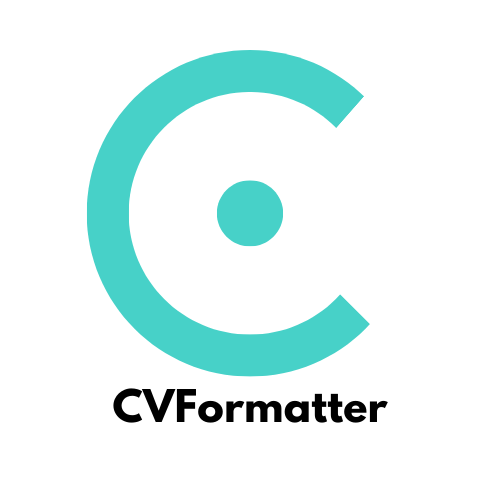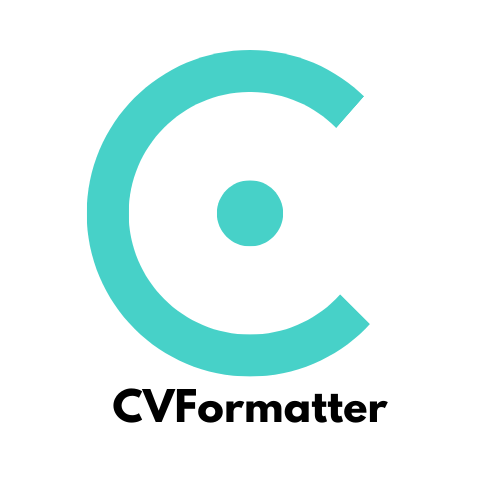Recruitment Agency Benefits vs In-House Hiring Insights for 2025

Recruitment methods have evolved significantly, offering organizations diverse options to meet their hiring goals. You can choose between recruitment agencies or in-house hiring, depending on your priorities. Recruitment agency benefits include faster hiring and access to broader talent pools, while in-house hiring provides cost control and cultural alignment. For example, a 2025 study shows recruitment agencies fill roles in 45-60 days, compared to 30-45 days for in-house teams. However, agencies often excel in retention rates, achieving 54% compared to 41% for in-house hiring. Understanding these dynamics helps you make informed decisions.
Key Takeaways
Recruitment agencies hire faster, usually in 45-60 days. They are great for quick hiring needs.
In-house hiring gives more control over the process. It helps match hiring to company culture and values.
Hiring in-house can save 30-50% on costs. This works well for companies that hire often.
A hybrid model uses both agencies and in-house teams. It offers flexibility and makes hiring more efficient.
Using technology like AI can make hiring easier. It improves candidate experience and speeds up recruitment.
Defining Recruitment Agencies and In-House Hiring
Recruitment Agency Overview
How recruitment agencies operate
Recruitment agencies act as intermediaries between employers and job seekers. They specialize in identifying, screening, and presenting qualified candidates for open positions. You provide them with job descriptions, and they handle the rest. Agencies use their networks, databases, and industry expertise to find the best talent. They often manage the initial stages of hiring, such as resume screening and preliminary interviews, saving you valuable time.
Many agencies also offer tailored services. For example, some focus on temporary staffing, while others specialize in executive-level recruitment. This flexibility allows you to choose an agency that aligns with your hiring needs.
Types of recruitment agencies
Recruitment agencies come in various forms, each designed to meet specific hiring goals. Here are the main types:
Generalist Agencies: These agencies cover a wide range of industries and roles. They are ideal if you need to fill multiple positions across different departments.
Specialist Agencies: These focus on specific industries, such as IT, healthcare, or finance. They are perfect for finding niche talent.
Temp Agencies: These agencies provide temporary workers for short-term projects or seasonal needs.
Executive Search Firms: Also known as headhunters, these firms specialize in recruiting for senior-level or executive roles.
Tip: Choosing the right type of agency can significantly impact the quality and speed of your hiring process.
In-House Recruiting Explained
Structure of in-house hiring teams
In-house hiring teams are part of your organization. They work closely with department heads to understand hiring needs. A typical team includes recruiters, HR specialists, and hiring managers. Each member plays a specific role in the recruitment process.
You can structure your team based on your company’s size. For smaller businesses, a single HR professional may handle all hiring tasks. Larger organizations often have dedicated teams for different functions, such as sourcing, interviewing, and onboarding.
Roles and responsibilities in in-house recruiting
In-house recruiters manage the entire hiring process. They create job postings, screen resumes, and conduct interviews. They also collaborate with managers to ensure candidates align with your company’s culture and values.
HR specialists often handle administrative tasks, such as background checks and offer letters. Hiring managers focus on evaluating candidates’ technical skills and fit for the role. By working together, your team ensures a seamless recruitment experience.
Note: In-house teams offer greater control over hiring decisions, making them ideal for companies with long-term staffing needs.
Similarities Between Recruitment Agencies and In-House Hiring
Shared Objectives
Finding the right talent for organizational success
Both recruitment agencies and in-house hiring teams share a common goal: finding the best talent to drive your organization’s success. They actively source candidates to fill open positions, ensuring you attract the most qualified individuals.
In-House Teams | Recruitment Agencies | |
|---|---|---|
Find suitable candidates | Yes | Yes |
Maintain effective communication | Yes | Yes |
Utilize technology for processes | Yes | Yes |
Both approaches also prioritize effective communication. They keep you informed about the hiring process and ensure a positive experience for candidates. This shared focus on transparency and efficiency helps build trust and strengthens your recruitment efforts.
Overlapping Recruitment Processes
Screening, interviewing, and onboarding
Recruitment agencies and in-house teams follow similar steps to identify and onboard candidates. Screening resumes, conducting interviews, and managing onboarding are integral parts of both processes.
For example, both methods involve evaluating resumes to shortlist candidates who meet your job requirements. Interviews help assess skills and cultural fit, while onboarding ensures new hires integrate smoothly into your organization. These overlapping processes highlight their shared commitment to delivering a seamless hiring experience.
Tip: Streamlining these steps with tools like CVFormatter can save time and improve consistency in candidate presentation.
Employer Branding Contributions
Enhancing company reputation through hiring efforts
Your hiring approach plays a significant role in shaping your employer brand. In-house recruiters often have a deeper understanding of your company’s culture and values. This insight helps them align candidates with your organizational ethos, ensuring consistency in branding across job postings and interactions.
Recruitment agencies also contribute by presenting your company professionally to candidates. Their expertise in candidate engagement enhances your reputation as an employer of choice. Both methods ultimately work to attract talent that resonates with your mission and values.
Note: A strong employer brand not only attracts top talent but also fosters long-term employee loyalty.
Key Differences Between Recruitment Agencies and In-House Hiring
Cost Comparison
Recruitment agency fees vs. in-house team expenses
Understanding the cost implications of recruitment methods is essential for making informed decisions. Recruitment agencies typically charge fees based on a percentage of the hired candidate's salary, ranging from 15% to 30%. For example, hiring a mid-level manager with a $100,000 salary could cost you $15,000 to $30,000. Specialized roles or executive searches may incur even higher fees. Agencies also offer flexibility, as you only pay when hiring is needed, making them cost-effective for occasional recruitment.
In contrast, in-house hiring teams require consistent investment. A fully loaded recruiter costs around $120,000 to $150,000 annually, including salary and benefits. This approach becomes more economical for companies with frequent hiring needs. For instance, hiring 200 employees in a year with an internal team could cost $1.2 million to $1.8 million, compared to over $6 million with agencies. If your organization has ongoing recruitment needs, building an in-house team can reduce costs by 30% to 50%.
Tip: Evaluate your hiring frequency and budget to determine which method aligns better with your financial goals.
Speed and Efficiency
Time-to-hire differences
Time is a critical factor in recruitment. Recruitment agencies excel in speed, often filling positions within 45-60 days. Their access to pre-vetted candidates and extensive networks allows them to act quickly, especially for hard-to-fill roles. In-house teams, on the other hand, can hire 30% faster when leveraging employer branding and employee referrals. However, the time-to-hire may vary based on the team's size and experience, particularly for specialized roles.
Recruitment Method | Average Time-to-Hire |
|---|---|
In-House Recruitment | Varies; faster with strong branding and referrals |
Recruitment Agencies | 45-60 days on average; quicker for niche roles |
If you need to fill roles urgently, a recruitment agency might be the better choice. For long-term hiring strategies, an in-house team can optimize processes to improve efficiency.
Talent Pool Access
Agency networks vs. internal sourcing
Recruitment agencies have a significant advantage when it comes to accessing broader talent pools. They maintain extensive databases of pre-vetted candidates and specialize in reaching passive candidates—those not actively seeking jobs but open to opportunities. This capability is particularly valuable for niche or specialized roles. Agencies often focus on specific industries, such as IT or healthcare, giving them an edge in sourcing top-tier talent.
In-house teams rely on internal sourcing methods, such as job boards, referrals, and social media. While effective, these methods may not match the reach of an agency's network. Agencies' ability to tap into passive candidates and industry-specific talent ensures a faster and more targeted recruitment process.
Note: If your organization requires niche expertise or struggles to find candidates through traditional methods, partnering with a recruitment agency can provide access to a wider talent pool.
Scalability and Flexibility
Adapting to fluctuating hiring needs
Your organization’s hiring needs often fluctuate due to factors like seasonal demand, project-based work, or unexpected vacancies. Recruitment agencies excel in helping you adapt to these changes efficiently. Their ability to scale hiring efforts ensures your workforce aligns with your business requirements at any given time.
Recruitment agencies offer several advantages when managing fluctuating hiring needs:
They fill vacancies faster than traditional hiring methods, ensuring your operations remain productive.
They provide flexibility for businesses without consistent hiring demands, allowing you to engage their services only when necessary.
They help you avoid the costs of maintaining a full-time in-house recruitment team, which can be expensive during periods of low hiring activity.
Additionally, staffing agencies give you access to a broad pool of qualified candidates. This allows you to address understaffing issues quickly without lengthy recruitment processes. For industries with seasonal peaks, such as retail or hospitality, this flexibility is invaluable. You can scale your workforce up or down based on current needs, ensuring you meet demand without overcommitting resources.
Another benefit lies in reducing hiring risks. Recruitment agencies enable you to evaluate worker performance before making long-term commitments. This trial period ensures you hire individuals who meet your expectations, minimizing costly hiring mistakes.
Tip: Partnering with a recruitment agency can save you time and resources while maintaining workforce agility. This approach is especially useful when your hiring needs are unpredictable or vary throughout the year.
By leveraging the scalability and flexibility of recruitment agencies, you can focus on your core business goals without worrying about staffing challenges. Their expertise ensures you remain agile in a competitive market.
Recruitment Agency Benefits

Specialized Expertise
Recruitment agencies bring unmatched expertise to the hiring process. Their deep industry knowledge and extensive networks allow them to identify top talent quickly. Agencies often specialize in specific fields, such as IT, healthcare, or finance, giving them an edge in sourcing candidates with niche skills. This specialization ensures you receive candidates who meet your exact requirements.
Agencies also stay updated on market trends, salary benchmarks, and candidate expectations. This insight helps you remain competitive in attracting the best talent. By leveraging their expertise, you can focus on your core business while they handle the complexities of recruitment.
Tip: Partnering with an agency that understands your industry can significantly enhance your hiring outcomes.
Time-Saving Advantages
Recruitment agencies excel in delivering a fast time to hire, especially for urgent roles. They handle time-consuming tasks like writing job descriptions and sorting through resumes. This delegation allows your internal team to focus on other priorities. Agencies also conduct preliminary interviews and use credible assessment methods to ensure only the most qualified candidates reach you. This thorough screening process eliminates unsuitable candidates early, saving you valuable time.
For example, if you need to fill a critical position quickly, an agency’s streamlined approach can reduce the hiring timeline significantly. Their ability to act swiftly ensures your operations remain uninterrupted.
Note: Faster hiring not only saves time but also minimizes the impact of vacant roles on your business.
Flexibility in Hiring
Managing high-volume or seasonal recruitment becomes effortless with recruitment agencies. They use programmatic job advertising to distribute job ads across multiple platforms, tailored to your budget and hiring goals. This technology ensures a steady flow of candidates by adjusting hiring parameters as needed.
Targeted advertising reaches both active and passive job seekers, enhancing visibility in competitive markets.
Agencies utilize diverse media, such as video and social media, to attract a larger audience.
Keeping in touch with previous seasonal workers or interviewed candidates ensures a reliable talent pool.
Staffing agencies also excel in filling specialized roles during peak periods. By outsourcing these tasks, you can access top talent without overburdening your in-house team. This flexibility ensures your workforce aligns with your business needs, even during fluctuating demand.
Tip: Recruitment agencies provide scalable solutions, making them ideal for businesses with unpredictable hiring patterns.
Administrative Support
Handling candidate screening and initial interviews
Recruitment agencies simplify the hiring process by managing many administrative tasks for you. These tasks often consume significant time and resources, especially when dealing with a high volume of applicants. Agencies take on the responsibility of screening candidates, ensuring only the most qualified individuals move forward in the hiring process.
They review resumes to identify candidates who meet your job requirements. This step eliminates unqualified applicants early, saving you from sifting through hundreds of resumes. Agencies also schedule interviews, coordinating with both candidates and your team to ensure a smooth process. This reduces the logistical burden on your internal staff.
Additionally, agencies conduct reference checks and background screenings. These steps verify a candidate’s qualifications and ensure they align with your company’s standards. By handling these tasks, agencies help you avoid potential hiring risks and ensure you receive well-vetted candidates.
Key administrative tasks handled by agencies include:
Screening resumes to shortlist qualified candidates.
Scheduling interviews to streamline the process.
Conducting reference and background checks for candidate verification.
This level of support allows you to focus on evaluating top candidates rather than managing the initial stages of recruitment. For example, if you’re hiring for multiple roles, an agency can handle the heavy lifting, ensuring your team remains productive.
Tip: Partnering with a recruitment agency can reduce administrative workload and improve hiring efficiency. Their expertise ensures a seamless process, from the first resume review to the final interview.
By outsourcing these tasks, you gain more time to focus on strategic decisions, such as selecting the best fit for your team. This approach not only saves time but also enhances the overall quality of your recruitment efforts.
Advantages of In-House Hiring
Control Over Recruitment
Direct involvement in hiring decisions
In-house hiring gives you complete control over the recruitment process. Your team manages every step, from sourcing candidates to finalizing offers. This direct involvement allows you to tailor strategies to meet your specific needs. For example, you can adjust job postings or interview questions to attract the best candidates for your organization.
By managing recruitment internally, you also maintain authority over key decisions. Your team can evaluate applicants thoroughly, ensuring they align with your company’s goals. This approach reduces the risk of hiring mismatches and fosters long-term success.
Key advantages of in-house recruitment include:
Tailored sourcing strategies to meet unique hiring needs.
Authority over interview processes and candidate selection.
Enhanced alignment with organizational objectives.
Advantage | Description |
|---|---|
Control Over Branding | You decide how your brand is presented to candidates, enhancing their experience. |
Control of Applicant Screening | Your team evaluates all candidates, ensuring no potential fits are overlooked. |
Understanding of Company Culture | Internal teams have a better grasp of your culture, aiding in selecting candidates who fit well. |
Tip: Direct involvement in hiring ensures you attract and select the best candidates who align with your vision.
Cost-Effectiveness for Ongoing Needs
Lower costs for consistent hiring
If your organization has frequent hiring needs, in-house recruitment can save you money. Compared to recruitment agencies, in-house hiring reduces costs by 30-50%. This cost-effectiveness stems from eliminating agency fees, which often range from 15% to 30% of a candidate’s salary.
By maintaining an internal team, you also gain better control over the recruitment budget. Your team can focus on long-term hiring strategies, reducing turnover and ensuring better fits. This alignment with company culture leads to higher retention rates, saving you additional costs associated with rehiring.
Why in-house hiring is cost-effective:
No recurring agency fees.
Better alignment with company culture, reducing turnover.
Long-term savings through consistent hiring practices.
For businesses with ongoing recruitment needs, this approach ensures financial efficiency while maintaining high-quality hires.
Cultural Alignment
Better understanding of company values
Your in-house team has a deep understanding of your company’s culture and values. This insight helps them identify candidates who will thrive in your work environment. By asking behavioral questions and assessing team compatibility, your team ensures new hires align with your mission.
How in-house hiring ensures cultural alignment:
Behavioral questions reveal how candidates approach challenges.
Team compatibility assessments evaluate collaboration skills.
Personal values inquiries determine alignment with your principles.
Understanding work environment preferences ensures comfort within your culture.
Knowledge of your mission and values confirms shared goals.
This focus on cultural fit not only attracts the best candidates but also fosters long-term employee satisfaction. When employees share your values, they are more likely to contribute positively to your organization.
Note: Cultural alignment strengthens team dynamics and enhances overall productivity.
Building Internal Talent Pipelines
Long-term employee development
Building internal talent pipelines ensures your organization remains prepared for future challenges. This approach focuses on developing your current employees, helping them grow into roles that align with your business needs. By investing in their growth, you not only retain top talent but also reduce the costs and time associated with external hiring.
To create a strong pipeline, start by identifying critical roles within your organization. Work with business leaders to determine which positions are essential for long-term success. Once you know these roles, plan for succession by forecasting potential gaps and preparing employees to step into these positions.
Conducting skill assessments is another key step. Evaluate your employees’ current abilities to identify areas for improvement. This helps you align their skills with future opportunities, ensuring they are ready to take on new challenges.
You can also encourage temporary transfers to different teams. This allows employees to explore new roles, enhancing their skills and motivation. For example, someone in marketing might benefit from a short-term project in sales, gaining a broader understanding of your business.
Offering specialized training weeks can quickly transform skill sets. Focused sessions help employees develop the expertise needed for future roles. Pair this with mentorship programs, where experienced leaders guide less seasoned employees. This approach accelerates professional growth and builds confidence.
Additionally, invest in both internal and external training opportunities. Partnering with educational institutions or creating in-house programs prepares your team for evolving industry demands. Peer-supported growth programs also foster collaboration and help employees learn from one another.
Tip: Developing internal talent pipelines not only strengthens your workforce but also boosts morale. Employees feel valued when you invest in their growth, leading to higher engagement and loyalty.
By focusing on long-term development, you create a resilient team ready to meet future challenges head-on.
Decision-Making Framework: Recruitment Agency vs. In-House Hiring
Evaluating Business Needs
Factors like company size and hiring frequency
Understanding your business needs is the first step in choosing between recruitment agencies and in-house hiring. You should evaluate key factors to determine which approach aligns with your goals:
Time to Fill: Assess how quickly you need to fill positions. A shorter timeline may favor recruitment agencies, while in-house teams can optimize processes for long-term needs.
Quality of Hire: Consider the importance of long-term performance and retention. In-house teams often excel in aligning hires with company culture, while agencies provide access to specialized talent.
Cost per Hire: Calculate the total cost of recruitment, ensuring it aligns with the value new employees bring to your organization.
Candidate Experience: Focus on creating a positive experience for applicants. This enhances your employer brand and increases job acceptance rates.
By analyzing these factors, you can identify whether your hiring needs are better suited for the flexibility of agencies or the control of an in-house team.
Budget Considerations
Comparing short-term and long-term costs
Budget plays a crucial role in your decision. Recruitment agencies typically charge 15-30% of a candidate’s first-year salary. This can lead to significant costs if you hire multiple employees. For example, hiring a mid-level manager with a $100,000 salary could cost $15,000 to $30,000.
In contrast, in-house hiring involves predictable expenses. A recruiter’s annual cost ranges from $120,000 to $150,000, making it more economical for frequent hiring. Bringing recruitment in-house can reduce costs by 30-50% compared to agencies. Additionally, in-house teams often achieve better retention rates, saving you from rehiring expenses.
Talent Acquisition Priorities
Speed, quality, and cultural fit
Your priorities in talent acquisition will influence your choice. Recruitment agencies excel in speed, filling roles within 45-60 days. They also provide access to passive candidates, ensuring high-quality hires for specialized roles. However, agencies may focus more on placement than retention, with 46% of hires leaving within 18 months.
In-house teams, on the other hand, can hire 30% faster when leveraging employer branding and referrals. They also ensure cultural alignment, which improves long-term retention. If quality and cultural fit are your top priorities, an in-house team may be the better option.
Tip: Align your hiring strategy with your business goals to achieve the best results.
Hybrid Hiring Models
Combining recruitment agency benefits with in-house recruiting
A hybrid hiring model blends the strengths of recruitment agencies with the advantages of in-house recruiting. This approach allows you to create a flexible and efficient hiring strategy tailored to your organization’s needs. By combining these methods, you can achieve better results in both candidate quality and recruitment efficiency.
In-house teams excel at maintaining cultural alignment. They understand your company’s values and ensure new hires fit seamlessly into your work environment. Recruitment agencies, on the other hand, specialize in handling urgent or hard-to-fill roles. Their extensive networks and industry expertise allow them to source top talent quickly. Together, these strengths create a balanced hiring process that adapts to your unique requirements.
Tip: Use in-house teams for long-term planning and cultural fit while relying on agencies for specialized or high-volume hiring.
A hybrid model also improves candidate quality. Recruitment agencies provide access to a broader talent pool, including passive candidates who may not actively seek jobs. Meanwhile, your in-house team ensures these candidates align with your organizational goals. This combination enhances the overall quality of hires.
Additionally, hybrid hiring increases administrative efficiency. Agencies handle time-consuming tasks like resume screening and initial interviews. This support allows your internal team to focus on strategic decisions, such as evaluating top candidates. By balancing the strengths of both approaches, you can streamline your recruitment process and achieve better outcomes.
Note: A hybrid hiring model offers scalability, speed, and cultural alignment, making it ideal for businesses with diverse hiring needs.
By adopting this approach, you can leverage the best of both worlds, ensuring your recruitment strategy remains agile and effective.
Future Trends and Insights for 2025

Technology in Recruitment
AI and automation in hiring processes
AI and automation are revolutionizing recruitment in 2025, making hiring faster, smarter, and more efficient. These tools streamline repetitive tasks like resume screening and interview scheduling, allowing you to focus on strategic decisions. Chatbots engage with candidates, providing real-time updates and improving communication. AI algorithms also help reduce unconscious bias, ensuring fairer hiring practices.
Metric | Improvement |
|---|---|
Cost per screen | |
Revenue per employee | 4% increase |
Employee turnover | 35% drop |
AI tools enable you to process more candidates in less time without compromising quality. This efficiency boosts hiring volume and allows your team to concentrate on building relationships with top talent. By adopting AI-driven solutions, you can transform your recruitment process and stay ahead in a competitive market.
Tip: Leveraging AI not only saves time but also enhances the overall candidate experience.
Diversity and Inclusion Initiatives
Supporting DEI through recruitment strategies
Diversity, equity, and inclusion (DEI) remain at the forefront of recruitment strategies in 2025. Companies are using data-driven approaches to track diversity metrics and ensure fair hiring practices. Inclusive job descriptions attract a wider range of candidates by eliminating biased language. Blind recruitment processes further minimize unconscious bias, creating equal opportunities for all applicants.
Organizations are also expanding neurodiversity initiatives to include candidates with neurological differences. Flexible work models, such as remote or hybrid setups, promote inclusivity by accommodating diverse needs. Leadership training programs focus on fostering inclusive teams and building a culture of belonging.
Note: Prioritizing DEI not only strengthens your workforce but also enhances your reputation as an employer of choice.
Changing Candidate Expectations
Adapting to evolving job seeker priorities
Candidate expectations are shifting rapidly, and adapting to these changes is essential for attracting top talent. Flexible work arrangements have become a priority, with many candidates seeking roles that offer work-life balance. Companies are also focusing on employee well-being, emphasizing mental health support and wellness programs.
Diversity policies now play a significant role in attracting skilled candidates. In fact, 51% of employers believe these policies help them secure unique talent. Strong employer branding is equally important. Businesses with a 5-star rating on candidate review sites see a 30% increase in application rates.
Organizations with robust candidate-experience strategies experience a 70% reduction in cost per hire. Personalized communication and faster application processes create a positive impression, encouraging more applicants to join your team.
Tip: Meeting candidate expectations not only attracts talent but also improves retention, ensuring long-term success.
Hybrid Hiring Strategies
Blending agency expertise with in-house hiring
A hybrid hiring strategy combines the strengths of recruitment agencies with the advantages of in-house teams. This approach allows you to create a flexible and efficient recruitment process tailored to your business needs. By blending these methods, you can achieve better results in both candidate quality and operational efficiency.
One of the key benefits of hybrid hiring is enhanced flexibility. Recruitment agencies help you adapt quickly to market changes, such as sudden hiring surges or niche talent requirements. At the same time, your in-house team ensures consistent brand messaging and cultural alignment throughout the hiring process. This balance allows you to respond to challenges without compromising your company’s identity.
Another advantage is resource efficiency. You can allocate internal resources to focus on core competencies, such as employee engagement or long-term workforce planning. Meanwhile, agencies handle specialized tasks like sourcing passive candidates or managing high-volume recruitment. This division of labor ensures your team remains productive while reducing the strain on internal resources.
A hybrid model also gives you access to a broader skill set. Recruitment agencies bring expertise in areas like technical execution, data analysis, and creative development. Your in-house team complements this by offering strategic planning and a deep understanding of your company’s culture. Together, these skills create a well-rounded hiring process that meets your unique requirements.
Tip: Use your in-house team for cultural alignment and long-term planning while relying on agencies for urgent or specialized roles. This combination ensures a seamless and effective recruitment strategy.
By adopting a hybrid hiring strategy, you can leverage the best of both worlds. This approach not only improves hiring outcomes but also positions your organization for long-term success.
Recruitment agencies and in-house hiring offer unique benefits. Agencies provide access to a rich talent pool and industry expertise, while in-house teams ensure cultural alignment and stronger employer branding. However, in-house teams may face challenges during hiring spikes, and agencies can be costly for frequent recruitment.
By 2025, hybrid approaches will dominate. Combining agency expertise with in-house control ensures flexibility and efficiency. Technology, such as AI and video interviewing tools, will streamline processes and improve candidate experiences. Flexible work models and career growth opportunities will also enhance employee satisfaction, keeping your business competitive in a dynamic job market.
FAQ
1. How do recruitment agencies save time during the hiring process?
Recruitment agencies handle time-consuming tasks like resume screening, candidate outreach, and initial interviews. Their pre-vetted talent pools and industry expertise allow them to fill roles faster than in-house teams. This efficiency ensures you can focus on strategic decisions while they manage the groundwork.
Tip: Use tools like CVFormatter to further streamline resume formatting and save even more time.
2. Is in-house hiring more cost-effective for frequent recruitment?
Yes, in-house hiring becomes more economical when you have consistent hiring needs. By eliminating agency fees, which range from 15% to 30% of a candidate’s salary, you can save 30-50% on recruitment costs. This approach also allows you to build long-term talent pipelines.
3. Can a hybrid hiring model work for small businesses?
A hybrid model works well for small businesses. You can use recruitment agencies for specialized or urgent roles while relying on your in-house team for cultural alignment and long-term planning. This balance ensures flexibility without overburdening your internal resources.
4. What role does technology play in modern recruitment?
Technology, like AI and automation, simplifies recruitment by speeding up resume screening, scheduling, and communication. Tools such as CVFormatter enhance efficiency by automating resume formatting, ensuring consistency and professionalism. These advancements help you focus on evaluating top candidates.
Note: Leveraging technology improves both speed and candidate experience, keeping you competitive.
5. How do recruitment agencies ensure cultural alignment?
Recruitment agencies collaborate closely with you to understand your company’s values and culture. They use this insight to screen candidates for compatibility. While in-house teams excel in cultural alignment, agencies can still deliver strong results by tailoring their approach to your specific needs.
See Also
An In-Depth Look at 360 Recruitment Strategies for 2025
The Definitive Handbook for Successful Tech Recruitment in 2025
Utilizing AI Resume Formatting to Enhance Recruitment Efficiency
Optimizing Recruitment Processes with Effective CV Formatting Solutions


